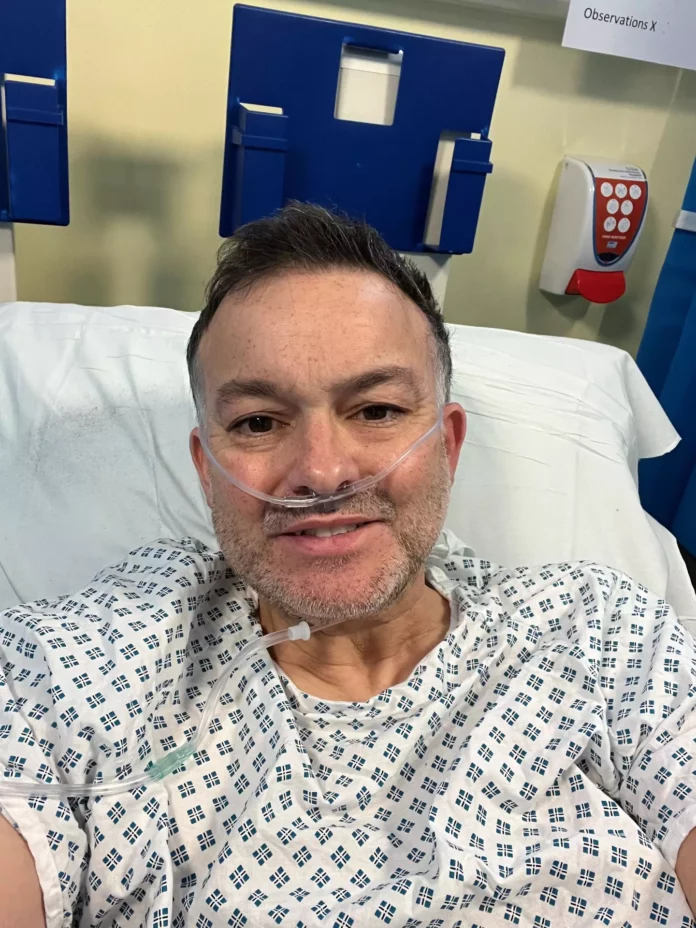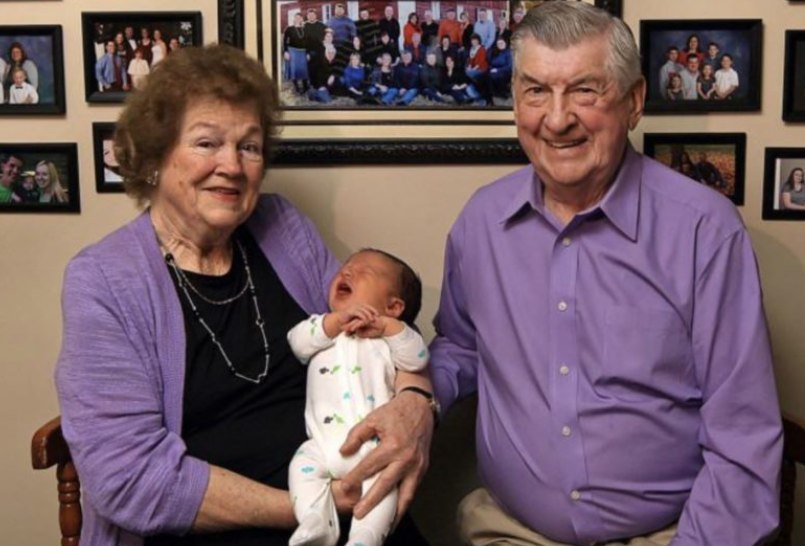A marathon runner, recently diagnosed with terminal pancreatic cancer, is encouraging others to pay attention to even the slightest health changes. What he first dismissed as minor symptoms turned out to be life-altering. Now, he is using his experience to raise awareness about this deadly disease, urging people to seek medical advice early.
A Devastating Diagnosis: Terminal Pancreatic Cancer
Marathon Runner and Father-of-Two Faces Terminal Cancer Diagnosis with Strength and Purpose
Lee Rawlinson, a 51-year-old medical sales representative and dedicated marathon runner from Essex, UK, lives with his wife, Faye, and their two children, 10-year-old Darcey and seven-year-old Marley.
On Halloween, Lee received heartbreaking news—he had been diagnosed with pancreatic cancer. Doctors revealed that the disease had already spread to his liver, leaving him with only months to live.
Determined to make the most of his time, Lee shifted his focus to creating unforgettable moments with his family, calling it his “last Christmas.” Now, he is sharing his story to raise awareness about pancreatic cancer, hoping to help others recognize the signs early and avoid the same tragic fate.
Lee solemnly acknowledged, “This will be my last Christmas. I stand at the edge of life, moving inevitably toward the unknown, powerless to change my course. It’s not death itself that I fear, but the thought of leaving my wife and children behind.”

Early Signs of Pancreatic Cancer
Lee’s journey started in January when he first felt a dull ache in his lower abdomen. Initially, he brushed it off as stress-related discomfort. Despite visiting his GP and receiving a referral to a gastroenterologist, he faced a lengthy 21-week wait for further testing. His initial blood and urine tests showed no abnormalities, resulting in no immediate follow-up.

By September, the pain had become excruciating. “I was taking painkillers every day, but they offered no relief. It felt as if a scaffolding pole was being slowly driven through me,” Lee recalled. A week later, while attending his son’s football practice, the agony became unbearable, forcing him to rush to the emergency room at Southend University Hospital. A CT scan soon delivered heartbreaking news—he had terminal pancreatic cancer.
Increasing Awareness of Pancreatic Cancer
Reflecting on his experience, Lee emphasized the importance of paying attention to your body and acting on unusual symptoms. “At first, I didn’t think much of the dull ache,” he admitted. “But looking back, I wish I had taken it more seriously and sought further testing sooner. Early diagnosis can be life-changing.”

When Lee discovered that his grandfather had pancreatic cancer, he realized there could be a genetic link. “The consultant mentioned that sometimes, it’s just your destiny,” Lee shared.
Now, he hopes his experience will inspire others to take even minor health concerns seriously.
“If you have persistent pain or unusual symptoms, don’t ignore them,” Lee advised. “Even if they seem small, get checked out—it could save your life.”
Creating Lasting Memories in the Face of a Terminal Diagnosis
Lee remains steadfast in his commitment to making the most of his time with family, despite the difficult circumstances. Wanting to create lasting memories, he surprised his children with a special trip to Lapland. “I want to be there for my kids, even if only in their memories,” he shared, emphasizing his dedication to making every moment count.
Lee underscored the urgent need for increased research and resources to combat pancreatic cancer. “Survival rates for pancreatic cancer have seen little improvement since the 1970s. This must change,” he stated. “We need to raise awareness so this disease stops tearing families apart.”
Despite the challenges of his diagnosis, Lee embraces each day with gratitude, cherishing time with his loved ones while confronting reality with resilience. He remains a dedicated advocate for early detection and awareness, urging individuals to listen to their bodies and seek medical attention at the first sign of concern.
If you or someone you know has been affected by pancreatic cancer and need support, reach out to the American Cancer Society at 1-800-227-2345 or connect with them through their 24/7 live chat service.
Kindly share this article with your friends and family on Facebook.






